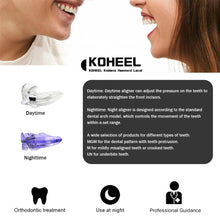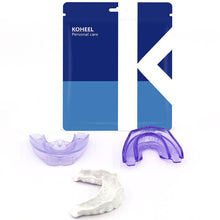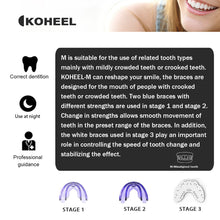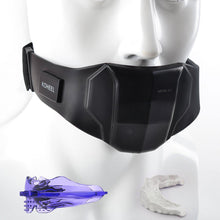Teeth grinding is the phenomenon of friction and wear between the upper and lower teeth without chewing food. This behavior is also known as dental tension disorder (Bruxism).Here are the causes of tooth grinding and how to deal with it.
The following are some of the possible causes of the formation of teeth grinding:
- Occlusal problems: Occlusal problems are one of the common causes of teeth grinding. An abnormal occlusal relationship (e.g. open jaw, crossbite, deep overlap, etc.) may lead to friction and wear between teeth. This occlusal imbalance may be caused by jaw development problems, abnormal tooth alignment or missing teeth.
- Stress and anxiety: Stress and anxiety is another common factor that causes teeth grinding. Certain people may release tension by grinding their teeth when they are emotionally tense or stressed. This habitual grinding behavior is known as dental tension disorder (Bruxism).
- Jaw and muscle problems: Abnormal jaw structure, muscle tension or jaw joint problems may also lead to the formation of teeth grinding. These problems may interfere with the normal occlusion of the teeth, causing friction and wear between the teeth.
- Chewing habits: Some people may develop the habit of chewing non-food substances (such as pens, pencils, fingernails, etc.) without realizing it, which may lead to tooth wear.
Solutions to tooth grinding problems can vary on an individual basis. The following are some common solutions:
- Braces or braces: Your dentist may recommend wearing braces or braces to address teeth grinding. These appliances provide a cushion while sleeping and reduce friction and wear between the teeth. Braces or plates are usually customized to fit the shape and needs of the individual's mouth.
- Medication: For severe teeth grinding problems, your dentist may consider using medication. For example, oral muscle relaxants can help relax jaw muscles and reduce tooth grinding behavior.
- Stress management and coping techniques: For teeth grinding problems related to stress and anxiety, learning effective stress management and coping techniques can help reduce teeth grinding behavior. This may include methods such as relaxation training, meditation, exercise, and seeking counseling.
- Changing bad habits: If you have bad oral habits, such as biting hard objects, chewing gum, and biting your nails, working to change these habits can reduce friction and wear between your teeth.
- Orthodontic treatment: If your teeth are not aligned properly or if you have bite problems, you may need orthodontic treatment. Orthodontic treatment can improve the bite of the teeth and reduce teeth grinding behavior.
- Coping with environmental factors: Some people may grind their teeth in a poor sleep environment. To improve teeth grinding problems, try to improve the sleep environment, such as reducing noise and maintaining a comfortable temperature and humidity.






